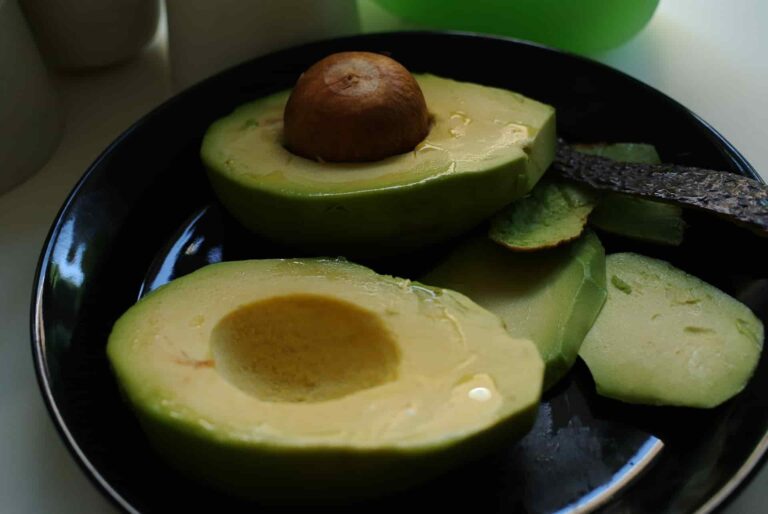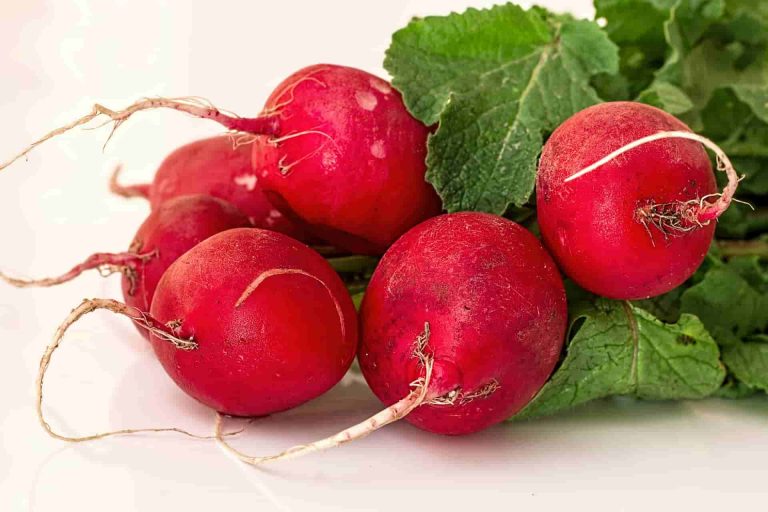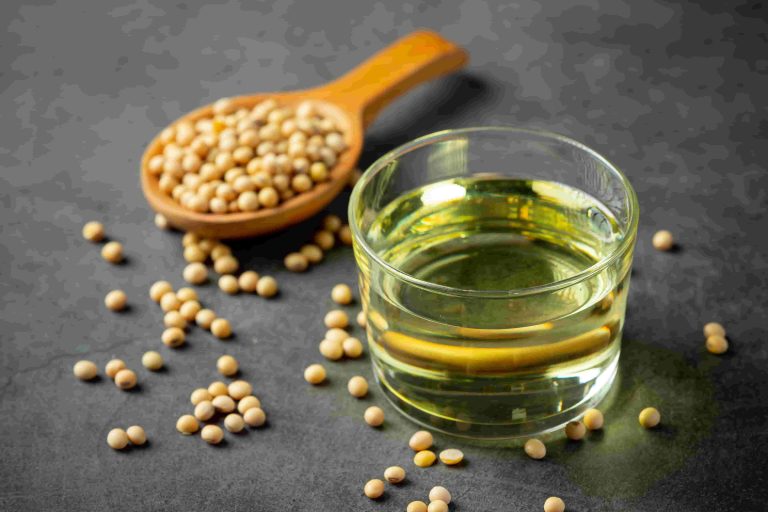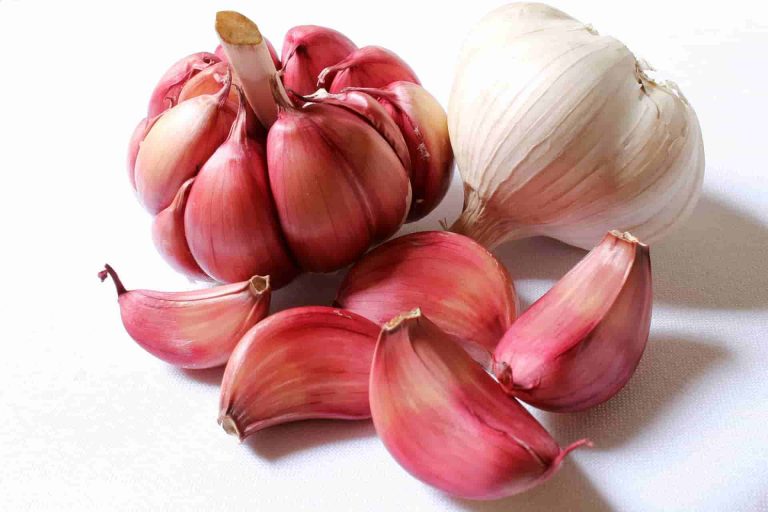5 hormones that affect our body weight
Did you know hormones that affect our body weight? Hormones have specific roles in the body and are involved in weight regulation. If the hormonal balance is imbalanced, this affects our body weight.
Health Bas explains how hormones affect our weight and what you need to look out for in your diet in order to regulate the hormone balance.

1. Insulin
Insulin is probably the best-known hormone that affects weight. The hormone is produced in the ß-cells of the pancreas. Insulin is responsible for moving glucose from the blood to the cells.
In the cells, the glucose is used to generate energy or is temporarily stored as glycogen in the liver.
After eating foods rich in carbohydrates, blood sugar levels rise . The ß-cells of the pancreas respond to this increase by releasing insulin into the blood. A high insulin level caused by blood sugar spikes promotes obesity and insulin resistance.
Nutrition expert Professor Dr. Andreas Hamann explains:
“If the body’s own insulin no longer works properly, we speak of insulin resistance. This often occurs in people who are very overweight: The excess fat prevents the insulin from bringing enough blood sugar to the muscle cells or from doing its job in the liver produce more insulin and a vicious circle arises: the increased insulin production in turn favors increased fat build-up, there is even more obesity, and insulin production has to be increased further. For example, more physical activity helps against insulin resistance. “
In addition to regulating blood sugar levels, insulin also controls fat burning and has a decisive influence on whether we gain weight or lose weight. It is therefore important to eat in such a way that the blood sugar level remains as constant as possible and is not too high.
Diet recommendation:
To avoid spikes in blood sugar and high insulin levels, you should avoid sweets containing sugar, white flour products and other simple carbohydrates if possible. Simple carbohydrates are quickly broken down into their sugar components and get into the bloodstream, whereupon the blood sugar rises.
The pancreas then releases a lot of insulin to help regulate blood sugar levels. As a result, the blood sugar level drops quickly again. This reaction favors that you get hungry or even cravings again faster and reach for food.
Studies show that the consumption of simple carbohydrates can lead to obesity and increased insulin levels.
Instead of white flour products, you should opt for whole grains, vegetables and foods rich in fiber. It’s also been proven that regular exercise, especially aerobics, helps keep insulin levels low.
2. Ghrelin
Ghrelin is also called the “hunger hormone”. It communicates with the hypothalamus, the part of the brain that regulates hunger. Ghrelin is responsible for the regulation of appetite and the energy balance and has an appetite-stimulating effect.
The hormone is mainly produced in the cells of the gastric mucosa, but also in numerous tissues such as the hypothalamus, the pancreas or the kidneys. The more ghrelin the stomach lining releases, the greater the hunger.
It is scientifically proven that ghrelin increases appetite. This is how the hormone affects weight. The ghrelin level rises before a meal, and then falls again. Studies show that proteins lower ghrelin the most after a meal.
Diet recommendation:
In order to effectively inhibit the hunger hormone ghrelin and to avoid hunger attacks, you should eat rich in protein. Protein -rich foods such as meat, fish, eggs, dairy products or legumes are recommended.
Legumes are not only rich in protein, but also contain a lot of fiber, which will keep you full for a long time and thus prevent hunger pangs.
3. Cortisol
Cortisol is an essential hormone that is made in the adrenal cortex. For example, the hormone has anti-inflammatory effects, regulates blood sugar and controls the protein and fat metabolism.
Cortisol is an important stress hormone. In stressful situations , the body releases more cortisol, which also increases the blood sugar level.
The aim is to provide the body with energy in the form of glucose. The increased cortisol release leads to cravings and binge eating. The body wants to prepare for longer periods of stress and stressful situations and is increasingly turning to sweet and high-calorie foods.
Diet recommendation:
To avoid food cravings during stressful times, you should eat smaller meals regularly. Always have a few nuts, cut vegetables or a piece of fruit ready in case you feel hungry.
Eating regularly can help prevent hunger pangs and avoid fainting at the kebab shop or the corner pastry shop.
You should also make sure that, despite the stress, you do not eat on the side, but deliberately allow yourself a meal break. This is important because while eating you can quickly lose control and the feeling of how much you have already eaten. Often you are more than your body actually needs.
4. Leptin
The hormone leptin is also in contact with the hypothalamus and is the antagonist of the hunger hormone ghrelin. Leptin is primarily made by the body’s fat cells. It regulates the feeling of hunger and is considered a natural appetite suppressant.
When the fat cells are full, they release leptin and send a saturation signal to the body. Leptin also interacts with insulin and can stimulate glucose utilization.
However, there are people in whom the hormone no longer works. These suffer from what is known as leptin resistance. Although the leptin level in the body is high, leptin resistance does not lead to a feeling of satiety.
Leptin resistance has been linked to overweight and obesity.
One possible cause of leptin resistance can be the consumption of high-sugar and high-fat foods. These foods promote inflammation in the brain. This is not how leptin can work.
Leptin resistance can be counteracted with regular exercise and the right diet.
Diet recommendation:
To prevent leptin resistance, you should avoid foods and drinks that contain sugar or fat as much as possible. Excessive consumption of fried foods, sweets and soft drinks, for example, can hinder the effectiveness of leptin.
Choose low-fat cooking methods, such as stewing, steaming or boiling, and in the afternoon it is better to snack a piece of fresh fruit and a few nuts than high-sugar snacks such as cake, chocolate and Co.
If water gets boring in the long run, the calorie-free drink can be spiced up with fresh mint, ginger, cucumber, lemon or orange, for example.
You will find that infused water is at least as refreshing as a soft drink. Unsweetened tea is a good and warming alternative to high-sugar drinks, especially in winter.
5. Glucagon-like peptide 1
The peptide hormone glucagon-like peptide 1, or GLP-1 for short, is produced in the intestine and plays an important role in glucose metabolism. It helps regulate blood sugar levels and promotes insulin production in the pancreas.
In addition, the hormone delays gastric emptying and thus reduces feelings of hunger. However, if the body does not produce enough of this hormone, you will not be full so quickly and will eat more than you actually need.
Diet recommendation:
Protein-rich foods have been shown to promote GLP-1 production. Therefore, you should consume plenty of protein-rich foods such as fish, meat, eggs, legumes, quark or other dairy products.
The article gave you an overview of which hormones affect weight. In order to regulate the hormone balance, it is generally advisable to avoid foods rich in sugar. Fat should also be consumed in moderation.
For this you should reach for protein-rich foods, legumes, whole grains and vegetables. In addition, a medical examination can be useful to find out what your body really needs.
Knowledge to take away
- Insulin: The hormone insulin regulates blood sugar levels. A high insulin level promotes obesity and insulin resistance. To avoid high insulin levels, avoid sugar and other simple carbohydrates wherever possible and instead eat whole grains, vegetables and foods rich in fiber. Regular exercise also helps keep insulin levels low.
- Ghrelin: Ghrelin is also called the “hunger hormone”. It is responsible for the regulation of appetite and the energy balance and has an appetite-stimulating effect. Eating protein-rich foods such as meat, fish, eggs, dairy products or legumes can effectively inhibit ghrelin.
- Cortisol: Cortisol is an important stress hormone. In stressful situations, the body secretes more cortisol, which increases blood sugar levels and causes food cravings. You can avoid these binge eating by eating smaller meals regularly and always having healthy snacks with you, such as nuts or fruit, that you can fall back on.
- Leptin: The hormone leptin is the antagonist of the hunger hormone ghrelin. It regulates the feeling of hunger and is considered a natural appetite suppressant. Leptin resistance does not lead to a feeling of satiety, although the leptin level in the body is high. This can lead to overweight and obesity. In order to prevent or counteract leptin resistance, you should avoid foods and drinks that are high in sugar and fat.
- Glucagon-like peptide 1: The peptide hormone glucagon-like peptide 1 helps regulate blood sugar levels and promotes insulin production in the pancreas. The hormone also delays gastric emptying and reduces feelings of hunger. You should consume plenty of protein-rich foods as these promote the production of GLP-1.






